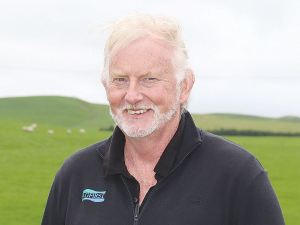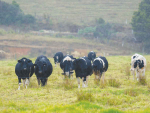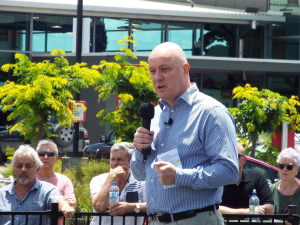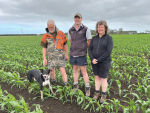The two farms were: the Okuku Māori Lands, which is based at Rerewhakaaitu just south of Rotorua; and the Wi Pere Trust, near Te Karaka – about half an hour’s drive out of Gisborne.
Each of the field days attracted about 300 people, including the Minister of Agriculture Damien O’Connor and the Associate Minister of Agriculture Meka Whaitiri, along with local and central government staff, rural professionals, farmers and whānau of the two finalists. On both farms, visitors heard presentations about the properties and were taken on a tour to see first hand the respective operations.
This aspect of the day proved very popular on both farms as a ‘snake’ of four wheel drive vehicles made their way around the well-formed farm lane ways and stopped at different places where staff talked about the specific nature of their farms and answered questions.
A radio system was set up where people on the farm tour could tune in and hear a running commentary from staff who pointed out key points of interest.
Onuku Trust
The first field day was held at Onuku Trust, which owns four dairy farms – one of these ovine – and a drystock finishing operation that is the farm entered in the competition.
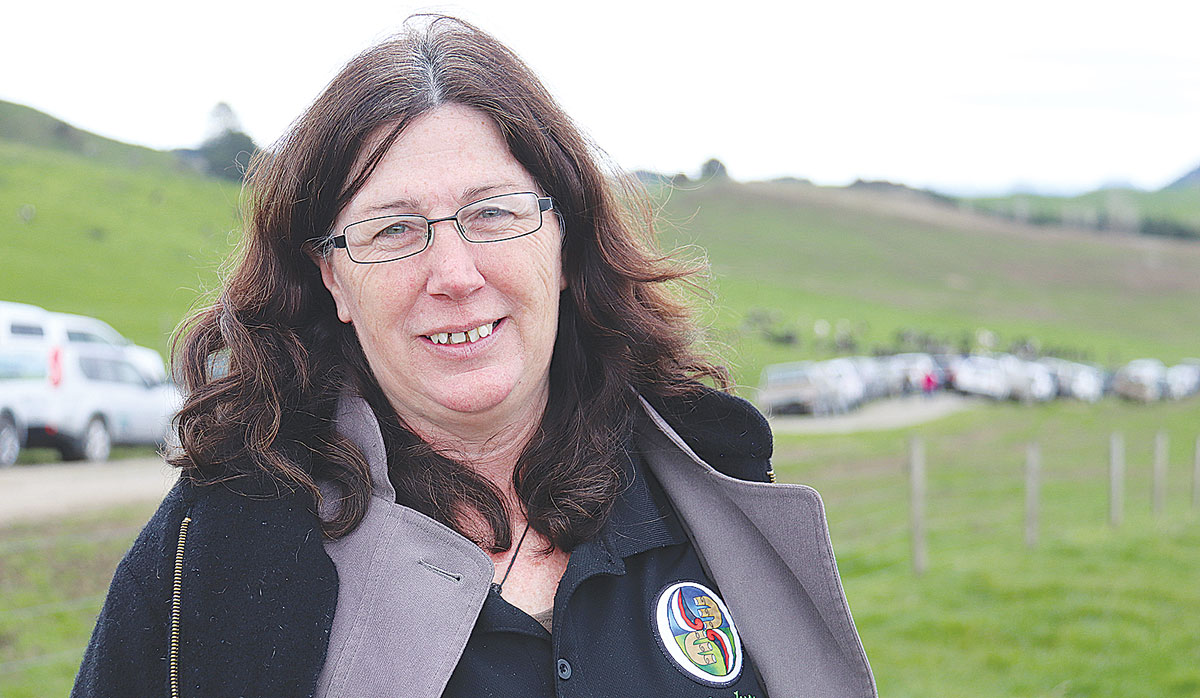 |
|---|
|
Onuku Maori Lands Trust chief executive Angela Wharekura.
|
The trust also runs a mānuka honey operation. The land where the farm is situated was formed as a result of the Mt Tarawera eruption in June 1886, which saw mud, ash and gravel deposited on the land. The 873 hectare drystock finishing farm is rolling contoured land. From the top of the farm, you can see lakes Rotomahana and Tarawera.
AgFirst’s Peter Livingston is one of Okuku’s main farm advisors. He says the dry-stock operation is multi-dimensional and works in conjunction with its dairy and sheep milking farms.
It operates as a finishing farm rather than a breeding unit. This makes for greater flexibility and provides the opportunity to play the trading market and change the mix of animals on the block to take advantage of the market.
“If we just had breeding flocks here we would be stuck only with lambs. Whereas we can chop and change the ratio of sheep to cattle, bulls to heifers and bulls to lambs from year-to-year as we see the markets changing in front of us,” Livingston explains.
Climate is another factor. The farm is 530 metres above sea level and Livingston says the climate can be harsh and the pasture growing season short. To help mitigate that, Onuku is not just relying on clover and ryegrass pastures. The trust has planted speciality finishing crops such as plantain, clovers and has 70 hectares in lucerne.
“The aim is to have about 20% of our farm in pasture other than ryegrass and clover,” Livingston adds.
He says another reason for moving away from being a breeding farm was soil type, which contains high levels of potassium. Livingston says this played havoc with the breeding flock because of its interaction with other minerals – such as potassium, calcium and magnesium. This led to problems with metabolics and bearings.
The farm does finish lambs and wethers from the sheep milking operation, most of which are finished on the property.
Organising the field day was the task of Onuku Māori Lands Trust chief executive Angela Wharekura. It was no small task setting up marquees for the presentations and meals and having staff to manage everything from providing food to preparing presentations.
“We were very pleased with the day and everyone from the trustees to the staff did a fabulous job, helped along by the fine weather,” she told Rural News. “It was a little easier for us as we had organised a similar field day in 2018 for the dairy competition, which we eventually won.”
Wharekura says the field day is special because it gives them a chance to recognise their hard working farm staff.
Minister of Agriculture Damien O’Connor told the gathering that Māori agribusiness has an incredible future because it will always own its land and can invest in its future.
“If more field days like this were to take place, others would learn more about best practice in farming,” he says.
Wi Pere Trust
Wi Pere is named after its tupuna/leader who held the Eastern Māori seat in Parliament from the mid 1880s through to the early 1900s and later served on the legislative council.
Throughout his political career he was a staunch advocate for the retention and development of Māori land. The Wi Pere trust was established in 1899 and 123 years later it has grown into a substantial holding.
The trust consists of three separately managed farms: Otara station, a 2,573ha class 3 steep hill country block; Tangihunga Station, a 1,420ha class 3 steep hill country block; and Tangihunga Finishing Farm, which is a mix of class 3 and 4 land. In total the combined farms winter around 33,000 sheep and 4,500 cattle.
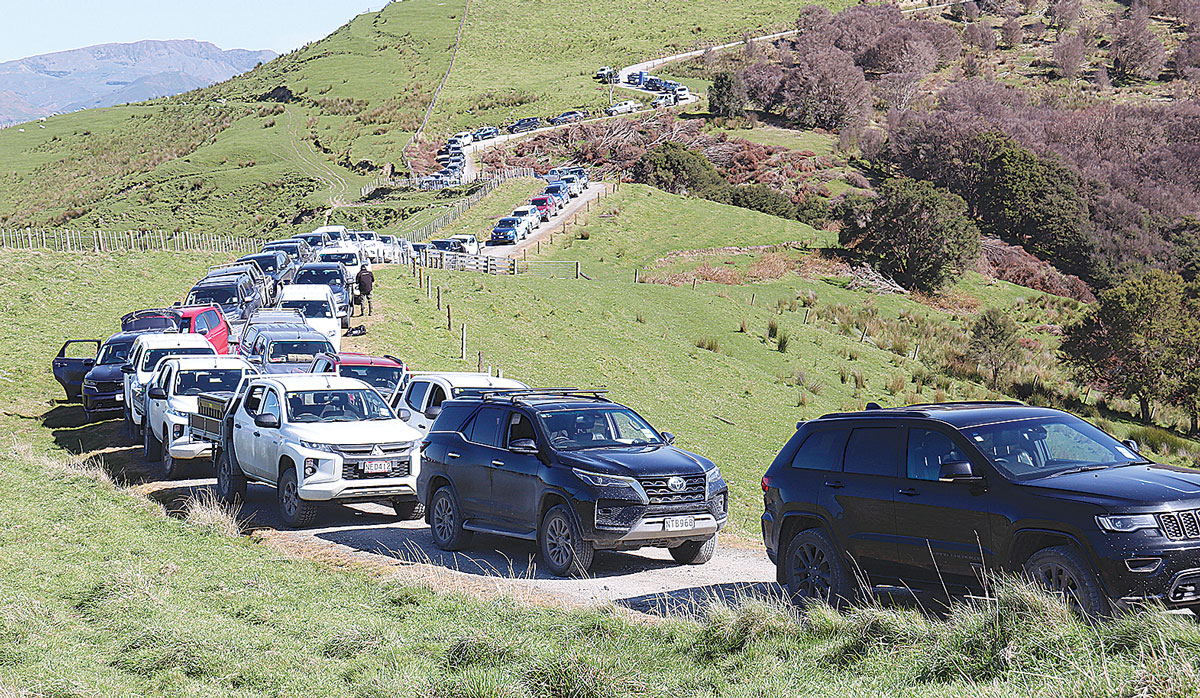 |
|---|
|
A 'snake' of four-wheel drive vehicles took 300 people on a grand tour of the Wi Pere Trust Otara station. Photo Credit: John Cowpland, Alphapix
|
The field day was held on the Otara block with the main presentation staged in a marquee at the airstrip on the property. From there a ‘snake’ of four wheel drive vehicles took the 300 people on a grand tour of the farm via the 14km loop road.
The view from the tops was spectacular and along the way people could see the 12 sets of satellite sheep yards and four sets of cattle yards designed to make it easier for staff to deal with the animals on the large hill country farm.
Tim Rhodes has been the manager of Wi Pere for 20 years and has seen the farm develop from when it had just 40 paddocks. Today this has grown to 260 and it now has 2,200ha under water reticulation. Otara is the main breeding unit on the farm.
“The farm policy is to farm the right stock in the right place,” Rhodes says.
He says they try to be flexible and will give new ideas a go, but if these don’t work they will quickly backtrack.
Coopworth ewes are run on the property and Rhodes admits managing feed is a bit of a challenge at times. They use cattle to groom the pastures for the ewes and also to get rid of woody weeds and scrub. The ewes are very fertile, which – strange as it may seem – is a bit of a problem for Rhodes and his team.
“We have between 15% to 20% triplets scanned and that is a lot of triplets,” he explains. “We can have 2,000 ewes lambing with triplets and they are really hard to feed on that steep hill country.”Despite all the challenges, Rhodes is a happy farm manager.
He says it’s been a wonderful journey to develop the farms and have the support of all the experts and trustees.Chair of the Wi Pere Trustees, Alan Haronga says, from his perspective, the field day was a great success.
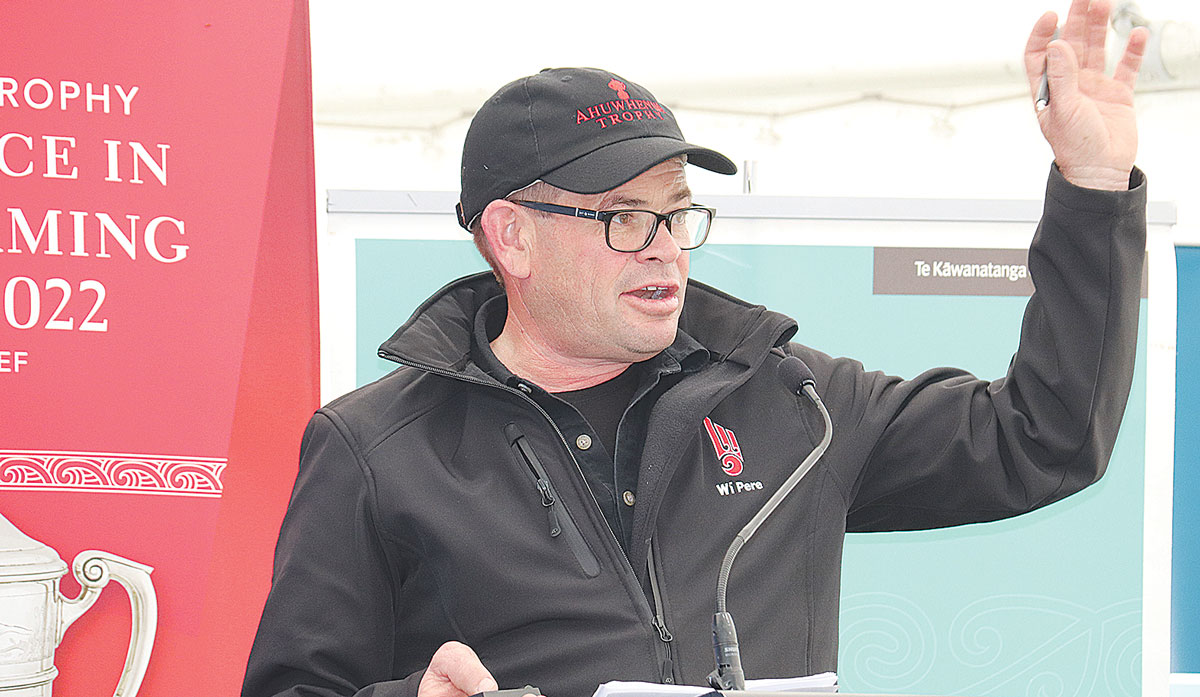 |
|---|
|
Tim Rhodes has been the manager of Wi Pere for 20 years and has seen the farm develop.
|
He says the huge turnout and the interest shown was beyond the trust’s expectations and the fact the sun was shining was an added bonus.
“That is part of trying to get messages across that people can take away, because at the end of the day, what we want to do is get people to do the same kind of things that we doing,” he told Rural News. “The sector needs energy and it needs uplifting and we are happy to put our shoulder to the wheel to make a contribution.”
Meka Whitiri described the field day as fantastic. She says those on the farm tour got an excellent insight into the high standard of Māori farming.
Big Effort Behind The Scenes
These field days are not only a chance for anyone to see the farms.
The team of second round judges are also there and, in fact, were on the farms the day before to be briefed and question staff and trustees. The first round judges selected the three finalists from the initial entrants.
The judging process is meticulous and the data gathered beforehand is presented in a 100 page handbook, which is available to everyone attending the field day. It’s not just about the profitability of the farm, it’s also about tikanga, environmental performance, governance and caring for staff.
The competition is managed by a team headed by Nukuhia Hadfield, who along with her husband Bart, are East Coast sheep and beef farmers and winners of the Ahuwhenua Trophy in 2015.
She says staging the field days was not an easy task given the adverse weather conditions, along with the Covid pandemic, that entrants had to endure in the lead up to the competition.
Hadfield says it’s great to see Māori farmers showcasing their enterprises and achievements and honouring the legacy of Sir Apirana Ngata and Lord Bledisloe, who inaugurated the competition 89 years ago.





